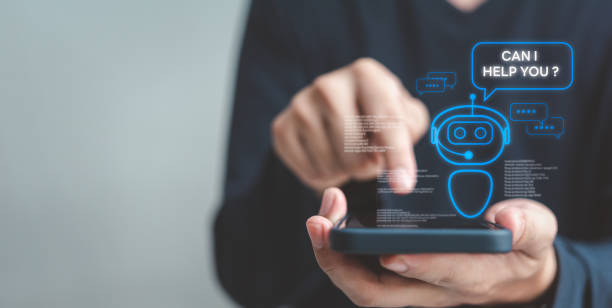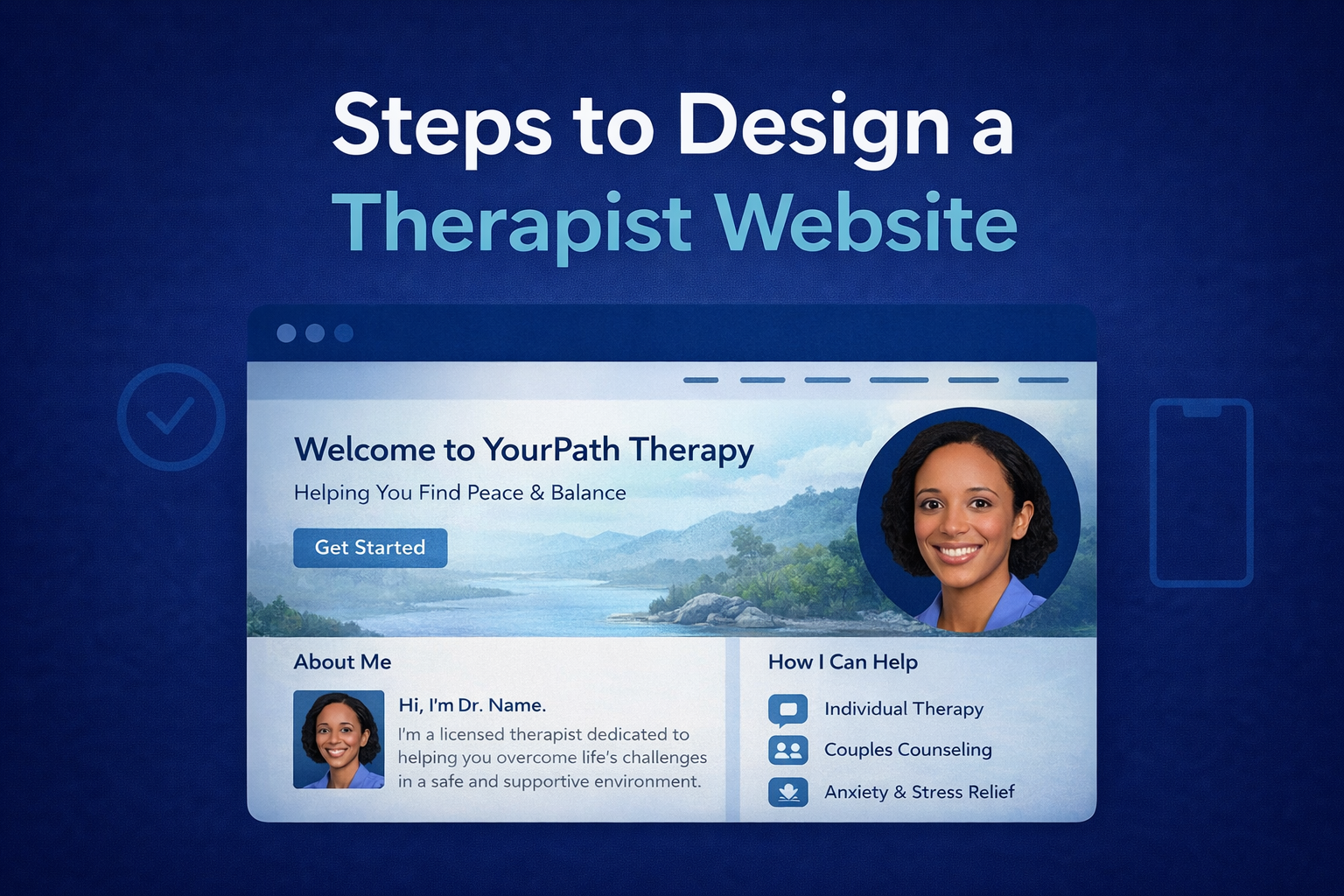AI chatbots have become a transformative tool for mental health professionals, enabling them to provide seamless support to clients even outside regular office hours. By leveraging advanced natural language processing and automation, these chatbots ensure that client queries are addressed promptly, maintaining engagement and trust while streamlining practice operations. This article explores how AI chatbots support after-hours client queries, their benefits, implementation strategies, and ethical considerations.
Understanding the Role of AI Chatbots in Mental Health Practices
AI chatbots are software applications designed to simulate human-like conversations, using machine learning and natural language processing to understand and respond to user inputs. For mental health professionals, chatbots serve as a virtual assistant, handling routine inquiries, scheduling, and even providing basic emotional support when therapists are unavailable.
After-hours client queries often include questions about appointments, billing, services, or general information about therapy. Without a system in place, these inquiries may go unanswered until the next business day, potentially leading to frustration or disengagement. AI chatbots bridge this gap by offering immediate responses, ensuring clients feel heard and supported at any time.
Why After-Hours Support Matters
Clients seeking mental health services often reach out during evenings or weekends when they have time to reflect or face emotional challenges. Providing timely responses can:
- Enhance client satisfaction: Immediate answers reduce wait times and improve the client experience.
- Increase accessibility: Clients in different time zones or with non-traditional schedules can connect easily.
- Build trust: Consistent availability demonstrates care and commitment to client needs.
Key Ways AI Chatbots Support After-Hours Queries
AI chatbots offer a range of functionalities that make them ideal for handling after-hours client interactions. Below are the primary ways they contribute to mental health practices.
1. Automating Appointment Scheduling
One of the most common after-hours queries involves scheduling or rescheduling appointments. AI chatbots can integrate with practice management systems to:
- Check therapist availability in real-time.
- Allow clients to book, modify, or cancel appointments without human intervention.
- Send automated confirmations and reminders via email or SMS.
This automation reduces administrative workload and ensures clients can secure appointments at their convenience. For more insights on scheduling solutions, explore AI-powered appointment scheduling.
2. Answering FAQs and Providing Information
Clients often have questions about services, fees, insurance, or teletherapy options. AI chatbots can:
- Deliver pre-programmed responses to common questions, such as “What types of therapy do you offer?” or “Do you accept insurance?”
- Provide links to relevant resources, such as service pages or intake forms.
- Guide clients to HIPAA-compliant contact forms for more complex inquiries.
By addressing these queries instantly, chatbots save time for both clients and therapists while maintaining a professional tone.
3. Offering Basic Emotional Support
While not a replacement for professional therapy, some AI chatbots are designed to provide basic emotional support. They can:
- Offer calming messages or mindfulness prompts for clients experiencing distress.
- Suggest coping strategies or resources, such as guided breathing exercises.
- Escalate urgent queries to an on-call therapist or crisis hotline when necessary.
This feature is particularly valuable for clients who need immediate reassurance during a crisis but cannot access a therapist right away.
4. Streamlining Intake Processes
New clients often inquire about the intake process after hours. AI chatbots can:
- Guide clients through completing online intake forms.
- Provide information on what to expect during the first session.
- Collect preliminary information securely, adhering to HIPAA compliance standards.
This functionality ensures a smooth onboarding process, reducing barriers for new clients. Learn more about secure intake forms at best online intake forms for therapy practices.
5. Enhancing Client Engagement
Chatbots can maintain engagement by:
- Sending follow-up messages or check-ins to clients who have reached out.
- Offering personalized content, such as blog posts or videos relevant to their queries.
- Encouraging clients to explore the practice’s website for additional resources.
This proactive engagement fosters a stronger connection between clients and the practice, even outside regular hours.
Benefits of AI Chatbots for After-Hours Support
Implementing AI chatbots in mental health practices offers several advantages that align with client needs and practice efficiency.
Improved Client Accessibility
AI chatbots ensure 24/7 availability, making mental health services more accessible to clients with busy schedules or those in crisis. This is particularly important for practices offering teletherapy, where clients expect flexibility. For more on teletherapy solutions, see top teletherapy platforms for therapists.
Reduced Administrative Burden
By automating routine tasks like scheduling and answering FAQs, chatbots free up therapists and staff to focus on clinical work. This efficiency can lead to cost savings and improved work-life balance for mental health professionals.
Enhanced Client Trust and Retention
Prompt responses to queries demonstrate reliability and care, which are critical for building trust in mental health services. Clients who feel supported are more likely to remain engaged and continue therapy.
Scalability for Growing Practices
For group practices or clinics with multiple therapists, chatbots can handle a high volume of inquiries without requiring additional staff. This scalability supports practice growth without compromising service quality.
HIPAA Compliance and Data Security
Modern AI chatbots designed for mental health practices are built with HIPAA-compliant features, ensuring that client data is protected. They use encryption and secure servers to safeguard sensitive information, aligning with ethical and legal standards. For more on compliance, check HIPAA-compliant tools for mental health counseling.
Implementing AI Chatbots in Your Practice
To successfully integrate AI chatbots for after-hours support, mental health professionals should follow these steps.
1. Choose the Right Chatbot Platform
Select a chatbot designed for mental health practices, with features like:
- HIPAA-compliant data handling.
- Integration with electronic health record (EHR) systems and scheduling tools.
- Customizable responses tailored to your practice’s tone and services.
Evaluate platforms based on ease of use, cost, and compatibility with existing systems. For insights on EHR integration, visit EHR-integrated websites for mental health practices.
2. Customize Responses for Relevance
Work with developers or use user-friendly interfaces to program the chatbot with responses that reflect your practice’s services, policies, and brand voice. Include FAQs, crisis protocols, and links to relevant website pages.
3. Ensure Seamless Integration
Integrate the chatbot with your website, EHR, and teletherapy platforms to provide a cohesive experience. Test the system to ensure it handles queries accurately and routes complex issues to human staff when needed.
4. Train Staff and Clients
Educate your team on how to monitor and manage chatbot interactions. Inform clients about the chatbot’s availability through your website or email campaigns, emphasizing its role in providing quick support.
5. Monitor and Optimize Performance
Regularly review chatbot interactions to identify common queries, refine responses, and improve user experience. Analytics can reveal patterns in client needs, helping you tailor your services accordingly.
Ethical Considerations for AI Chatbots in Mental Health
While AI chatbots offer significant benefits, their use in mental health practices requires careful consideration to maintain ethical standards.
Maintaining Client Confidentiality
Ensure the chatbot complies with HIPAA regulations by using secure platforms that encrypt data and limit access to authorized personnel. Regularly audit the system for vulnerabilities.
Setting Clear Boundaries
Clearly communicate that the chatbot is not a substitute for professional therapy. Provide disclaimers that it offers general information or support and direct clients to human therapists for clinical needs.
Avoiding Over-Reliance on Automation
While chatbots handle routine queries effectively, they cannot replace the empathy and expertise of a trained therapist. Use chatbots to complement, not replace, human interaction.
Addressing Bias and Accuracy
AI chatbots can inadvertently perpetuate biases if not properly trained. Work with developers to ensure responses are inclusive, culturally sensitive, and accurate, reflecting the diverse needs of your client base.
Challenges and Solutions
Implementing AI chatbots may come with challenges, but proactive strategies can address them.
Challenge: High Initial Costs
Solution: Start with a cost-effective chatbot platform and scale features as your practice grows. Consider the long-term savings from reduced administrative tasks.
Challenge: Technical Glitches
Solution: Partner with a reliable IT provider to ensure regular updates and technical support. Test the chatbot regularly to maintain functionality.
Challenge: Client Resistance to Technology
Solution: Educate clients about the benefits of the chatbot, such as faster responses and 24/7 availability. Offer human support as a fallback for those uncomfortable with automation.
The Future of AI Chatbots in Mental Health
As technology evolves, AI chatbots are expected to become even more sophisticated, offering features like:
- Advanced sentiment analysis to detect emotional distress and provide tailored responses.
- Integration with wearable devices to monitor client well-being in real-time.
- Multilingual support to serve diverse populations.
These advancements will further enhance after-hours support, making mental health services more accessible and personalized.
Conclusion
AI chatbots are a game-changer for mental health practices, providing a reliable way to support after-hours client queries while maintaining efficiency and compliance. By automating scheduling, answering FAQs, offering basic support, and streamlining intake processes, chatbots enhance client satisfaction and practice scalability. With careful implementation and attention to ethical considerations, therapists can leverage this technology to build stronger client relationships and grow their practice.
For expert guidance on integrating AI chatbots and other digital tools into your mental health practice, explore the solutions offered by Mental Health IT Solutions.







